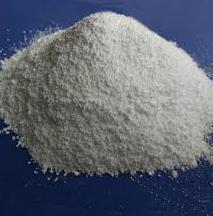Content
Sodium benzoate, also known as E211 dietary supplement, is beneficial in a variety of industries. It is common in many countries, including Russia, Ukraine, the USA and Australia, but the benefits and harms of sodium benzoate are not fully understood and are still controversial among researchers.
What is sodium benzoate and what is it for
In appearance, sodium benzoate is a white substance with a faint almond odor. Has a powdery structure. It does not occur in its pure form in nature, since it is a synthetically derived compound of benzoic acid. The latter is found in very small doses in some berries and plants, but for industrial needs it is synthesized in large quantities in laboratories.

Sodium benzoate was discovered by German chemist Wilhelm Hugo Fleck. In the course of his experiments, he tried to synthesize a substance similar in principle to salicylic acid. The production of this acid was very laborious and it was necessary to create a less energy-consuming analogue. Fleck succeeded in 1875.
In addition to being cheaper to manufacture, sodium benzoate also provides significant benefits. This food supplement has beneficial antibacterial properties and prevents the growth of yeast and molds. It also slows down the course of oxidative processes, this property makes it an effective preservative.
Where is sodium benzoate used
Sodium benzoate is most actively used in the food industry, as it can retain its chemical properties at any temperature. Its beneficial properties are manifested in good solubility in water, as a result of which it is used in the manufacture of many types of products. Sodium benzoate also tends to enhance the flavor and keep food fresh for a long time.
E211 is a component of some medicines and hygiene products due to another useful ability: to prevent the growth of bacteria. These beneficial properties of this supplement have found application in the treatment of schizophrenia and hyperammonemia.
The benefits of E211 are also great in the production of perfumery and decorative cosmetics. It is also used in pyrotechnics when creating fireworks. The beneficial properties of the antiseptic were also useful in the inclusion of sodium benzoate in the composition of inhibited paper, which is used to protect aluminum coatings in the aviation industry.

Why sodium benzoate is dangerous
Despite numerous studies on the effect of sodium benzoate on the human body, at the moment the question of its benefits and harms remains not fully understood. Back in 2007, British scientist Peter Piper, observing the effect of various acids on living cells, suggested that an excess of the dose of the food additive E211 could cause irreparable harm to the internal structure of cells in the human body. Mutations at the intracellular level, in turn, can lead to a number of diseases of the nervous system, such as Parkinson's disease.However, to date, data on the harm of E211 mutations have not been confirmed.
It is reliably known that the properties of sodium benzoate when consumed in some cases can have a negative effect on the body of people suffering from asthma, dermatitis and allergies, and can even aggravate the symptoms of these diseases. The harm of exposure to E211 has also been recorded when combined with certain chemicals, which will be mentioned below.
Effects of sodium benzoate on children's health
According to some reports, the harm of E211 supplements may be associated with the development of attention deficit disorder in children. This hypothesis requires further study, but the British Food Standards Agency (FSA) has determined that the reaction with sodium benzoate of some artificial colors may exacerbate hyperactive behavior in children.
Combination of E211 preservative with other additives
Thus, changes in the behavior of children were noted when combining sodium benzoate with the following food additives:
- E102, also known as tartrazine;
- E104;
- E110;
- E122, or carmoisine;
- E124;
- E129.
Some of these additives can be harmful due to their ability to act as an allergen. Therefore, more and more manufacturers refuse to use them in the manufacture of their products, preferring more useful natural dyes.
Sodium benzoate with ascorbic acid
The food additive E211 causes the greatest harm in combination with such a useful element as vitamin C, other names for which are ascorbic acid and the additive E300. When these two compounds react, they form benzene, which is a dangerous carcinogen. The harm of prolonged use of benzene has been proven: its property to accumulate in the human body can subsequently provoke cirrhosis of the liver and the development of malignant tumors. However, obtaining benzene from sodium benzoate is a complex process that requires special conditions and high temperatures. Therefore, the formation of this carcinogen during the production of food and medicine is highly unlikely.
What foods contain sodium benzoate

Despite a number of controversial statements about the effects of E211 on humans, it is difficult to deny its benefits in the food industry. Due to its preservative properties, it is included in many foods with a long shelf life, such as:
- non-alcoholic carbonated drinks;
- salad dressings;
- canned foods;
- pickled vegetables;
- sausages;
- sweets;
- sauces and spices;
- high-fat dairy products;
- fruit and juice products, including baby food.
Sodium benzoate in cosmetics
The beneficial properties of E211 have found their place in the production of the following cosmetics:
- toothpastes;
- shampoos;
- cleansing gels;
- face and body creams.
Conclusion
The benefits and harms of sodium benzoate are currently not well understood. In a number of countries, it is an approved food additive and in small quantities is considered not hazardous to human health and useful for industrial purposes.However, exceeding the recommended dose can lead to complications of some diseases, especially when combined with certain substances. Therefore, in order to avoid harm, it is worthwhile to carefully read the composition of products and pharmaceuticals before buying or using them.

